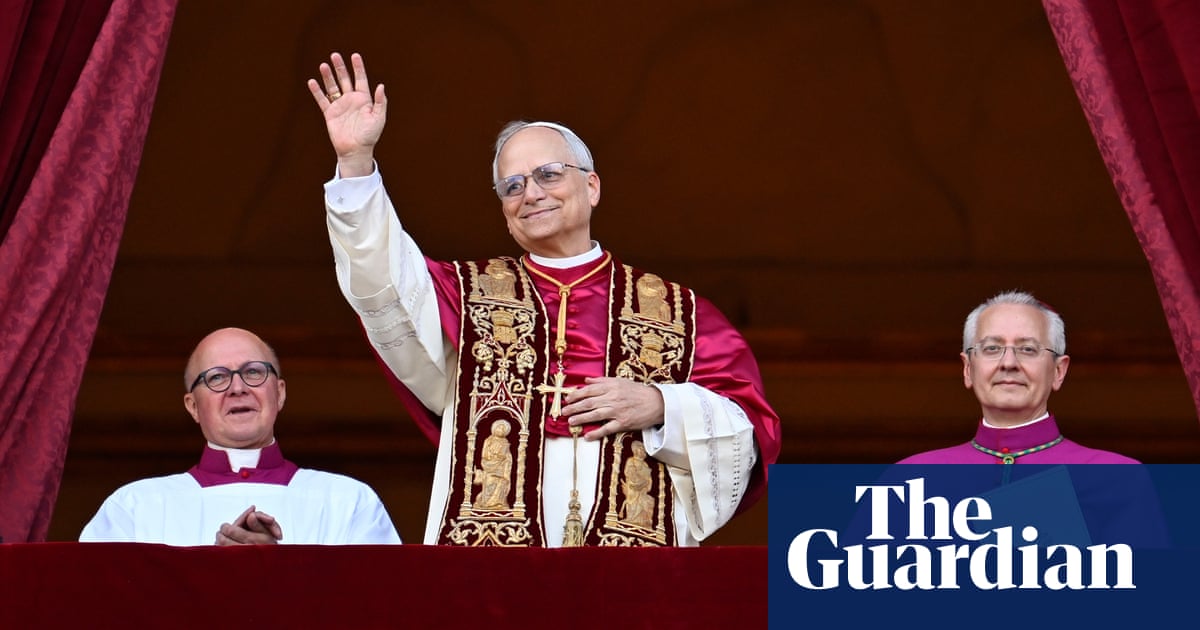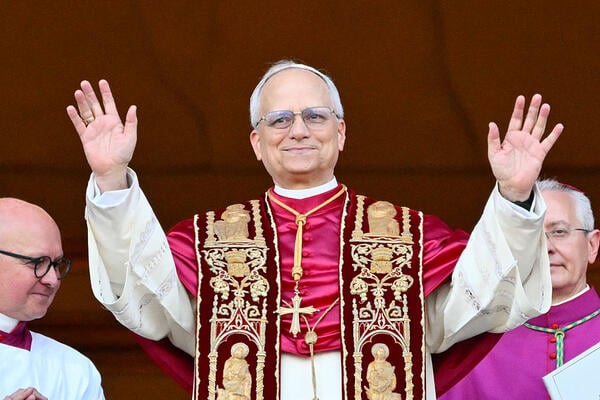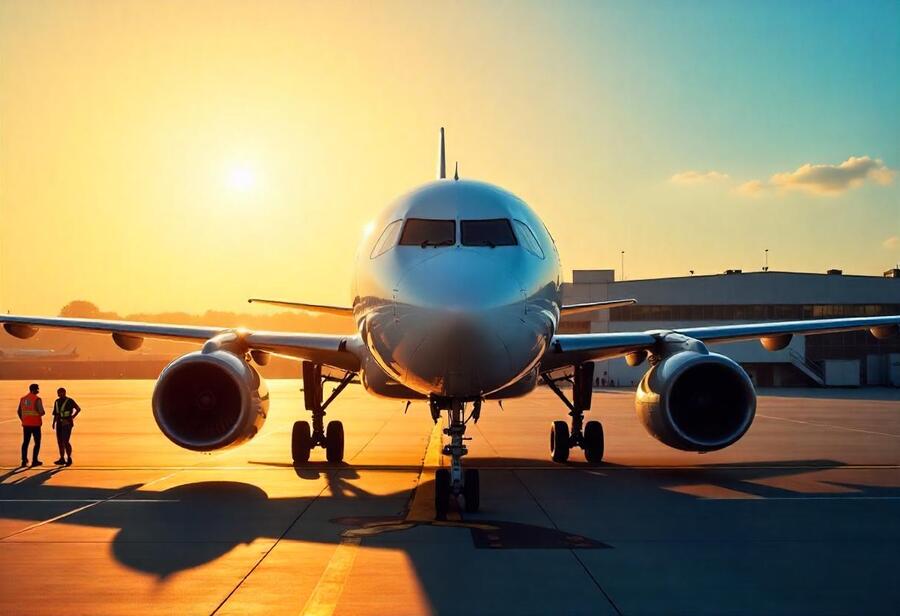How Pope Leo XIV might share the world stage with Trump - Newsday
Pope Leo XIV, the first American pontiff, is expected to exert his global influence in a similar way as Pope Francis, serving as a papal bulwark against President Donald Trump's policies on immigration and other issues.
"Pope Leo is today the most powerful and influential American on the planet," said Steven Millies, a professor at Catholic Theological Union in Chicago. "He’ll be a counterweight to Donald Trump simply because he is already more powerful than Donald Trump. ... His voice will resound around the world globally in a way Trump’s simply can't."
Unlike Pope Francis, a Jesuit who once declared that Trump is not a Christian, Leo, from the Augustinian religious order, is considered a bridge builder of sorts and more reserved. But also, to some, he can be a mild, 69-year-old disrupter, the right choice to be the "vicar of Christ" at a time of global instability not seen since the cardinals chose Pope John Paul II in 1978.
Even so, expect a less aggressive leadership style from the Chicago native and Villanova University graduate, analysts said.
Leo is "not going to start fights with someone like Trump, but he's also not going to back down from defending Catholic teaching and defending all human dignity" on issues including migration, workers’ rights and the rule of law, said Daniel Rober, a professor of Catholic studies at Sacred Heart University in Fairfield, Connecticut.
The College of Cardinals elected Robert Francis Prevost as pope mainly for his pastoral and administrative qualities as a longtime missionary in Peru, head of the Augustinian religious order and head of an office that helped Pope Francis select bishops, analysts said.
But the cardinals also overcame a long-standing taboo against electing an American pope partly because they believed Prevost could challenge Trump as a fellow American, said David Gibson, director of the Center on Religion at Fordham University.
"With Donald Trump viewed widely around the world and in the church as a populist bully, the cardinals are at one level fine with an American who knows what the church stands for and is willing to say it," Gibson said.
Some church officials denied that Prevost’s election was in any sense a reaction to Trump.
"I don't think at all my brother cardinals would have thought of him as a counterweight to any one person," Cardinal Timothy Dolan of New York told reporters in Rome last week.
The White House did not respond to a request for comment. Trump previously said Pope Leo's election is a "great honor" for the U.S.
Some of Trump’s staunchest supporters, among them influential far-right activist Laura Loomer, were angered by the election of Prevost.
"He is anti-Trump, anti-MAGA, pro-open Borders, and a total Marxist like Pope Francis," Loomer, who has met with Trump in the Oval Office, wrote on X.
Millies likened Leo's election to that of Pope John Paul II in 1978. John Paul, a native of Poland who came from behind the Iron Curtain and who the cardinals thought would challenge the Soviet bloc, was the first non-Italian elected pope in more than 400 years.
"Cardinals always take global events with them into the conclave, and it would be very difficult not to be aware of the climate that we're all living in," Millies said. Leo "is absolutely an American. He understands the political culture and the wider environment of the United States."
The cardinals also believe Prevost will stand up to a rising tide of authoritarianism in countries with large Catholic populations, including El Salvador, Hungary, the Philippines and Venezuela, Millies said.
Some analysts believe any pope would be in tension with Trump if the pontiff stresses the church view on social issues.
A pope who "promotes Catholic social teaching is going to be at odds with a lot of this administration's policies" such as the crackdown on immigration, said John Thavis, a former longtime Vatican correspondent.
"On the economy and on capitalism in particular," Thavis added of the pope and the president, "I think they're going to have just some fundamental disagreements."
Still, he said: "I don't envision Pope Leo going out of his way to provoke conflict with the U.S. administration."
Pope Leo XIV, the first American pontiff, is expected to exert his global influence in a similar way as Pope Francis, serving as a papal bulwark against President Donald Trump's policies on immigration and other issues.
"Pope Leo is today the most powerful and influential American on the planet," said Steven Millies, a professor at Catholic Theological Union in Chicago. "He’ll be a counterweight to Donald Trump simply because he is already more powerful than Donald Trump. ... His voice will resound around the world globally in a way Trump’s simply can't."
Unlike Pope Francis, a Jesuit who once declared that Trump is not a Christian, Leo, from the Augustinian religious order, is considered a bridge builder of sorts and more reserved. But also, to some, he can be a mild, 69-year-old disrupter, the right choice to be the "vicar of Christ" at a time of global instability not seen since the cardinals chose Pope John Paul II in 1978.
Even so, expect a less aggressive leadership style from the Chicago native and Villanova University graduate, analysts said.
Leo is "not going to start fights with someone like Trump, but he's also not going to back down from defending Catholic teaching and defending all human dignity" on issues including migration, workers’ rights and the rule of law, said Daniel Rober, a professor of Catholic studies at Sacred Heart University in Fairfield, Connecticut.
The College of Cardinals elected Robert Francis Prevost as pope mainly for his pastoral and administrative qualities as a longtime missionary in Peru, head of the Augustinian religious order and head of an office that helped Pope Francis select bishops, analysts said.
But the cardinals also overcame a long-standing taboo against electing an American pope partly because they believed Prevost could challenge Trump as a fellow American, said David Gibson, director of the Center on Religion at Fordham University.
"With Donald Trump viewed widely around the world and in the church as a populist bully, the cardinals are at one level fine with an American who knows what the church stands for and is willing to say it," Gibson said.
Some church officials denied that Prevost’s election was in any sense a reaction to Trump.
"I don't think at all my brother cardinals would have thought of him as a counterweight to any one person," Cardinal Timothy Dolan of New York told reporters in Rome last week.
The White House did not respond to a request for comment. Trump previously said Pope Leo's election is a "great honor" for the U.S.
Some of Trump’s staunchest supporters, among them influential far-right activist Laura Loomer, were angered by the election of Prevost.
"He is anti-Trump, anti-MAGA, pro-open Borders, and a total Marxist like Pope Francis," Loomer, who has met with Trump in the Oval Office, wrote on X.
Millies likened Leo's election to that of Pope John Paul II in 1978. John Paul, a native of Poland who came from behind the Iron Curtain and who the cardinals thought would challenge the Soviet bloc, was the first non-Italian elected pope in more than 400 years.
"Cardinals always take global events with them into the conclave, and it would be very difficult not to be aware of the climate that we're all living in," Millies said. Leo "is absolutely an American. He understands the political culture and the wider environment of the United States."
The cardinals also believe Prevost will stand up to a rising tide of authoritarianism in countries with large Catholic populations, including El Salvador, Hungary, the Philippines and Venezuela, Millies said.
Some analysts believe any pope would be in tension with Trump if the pontiff stresses the church view on social issues.
A pope who "promotes Catholic social teaching is going to be at odds with a lot of this administration's policies" such as the crackdown on immigration, said John Thavis, a former longtime Vatican correspondent.
"On the economy and on capitalism in particular," Thavis added of the pope and the president, "I think they're going to have just some fundamental disagreements."
Still, he said: "I don't envision Pope Leo going out of his way to provoke conflict with the U.S. administration."
Bart Jones has covered religion, immigration and major breaking news at Newsday since 2000. A former foreign correspondent for The Associated Press in Venezuela, he is the author of “HUGO! The Hugo Chavez Story from Mud Hut to Perpetual Revolution.”










:max_bytes(150000):strip_icc()/GettyImages-2214198535-4640ef37dc5e453cb2c6b19e74f47622.jpg)